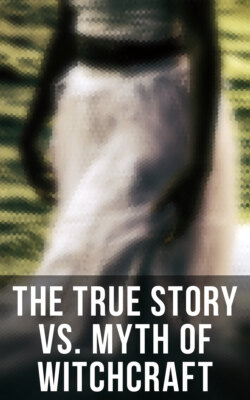Читать книгу The True Story vs. Myth of Witchcraft - William Godwin - Страница 160
На сайте Литреса книга снята с продажи.
Thomas Aquinas.
ОглавлениеThomas Aquinas, who has likewise been brought under the imputation of magic, was one of the profoundest scholars and subtlest logicians of his day. He also furnishes a remarkable instance of the ascendant which the friars at that time obtained over the minds of ingenuous young men smitten with the thirst of knowledge. He was a youth of illustrious birth, and received the rudiments of his education under the monks of Monte Cassino, and in the university of Naples. But, not contented with these advantages, he secretly entered himself into the society of Preaching Friars, or Dominicans, at seventeen years of age. His mother, being indignant that he should thus take the vow of poverty, and sequester himself from the world for life, employed every means in her power to induce him to alter his purpose, but in vain. The friars, to deliver him from her importunities, removed him from Naples to Terracina, from Terracina to Anagnia, and from Anagnia to Rome. His mother followed him in all these changes of residence, but was not permitted so much as to see him. At length she spirited up his two elder brothers to seize him by force. They waylaid him in his road to Paris, whither he was sent to complete his course of instruction, and carried him off to the castle of Aquino where he had been born. Here he was confined for two years; but he found a way to correspond with the superiors of his order, and finally escaped from a window in the castle. St. Thomas Aquinas (for he was canonised after his death) exceeded perhaps all men that ever existed in the severity and strictness of his metaphysical disquisitions, and thus acquired the name of the Seraphic Doctor.
It was to be expected that a man, who thus immersed himself in the depths of thought, should be an inexorable enemy to noise and interruption. We have seen that he dashed to pieces the artificial man of brass, that Albertus Magnus, who was his tutor, had spent thirty years in bringing to perfection, being impelled to this violence by its perpetual and unceasing garrulity. 173 It is further said, that his study being placed in a great thoroughfare, where the grooms were all day long exercising their horses, he found it necessary to apply a remedy to this nuisance. He made by the laws of magic a small horse of brass, which he buried two or three feet under ground in the midst of this highway; and, having done so, no horse would any longer pass along the road. It was in vain that the grooms with whip and spur sought to conquer their repugnance. They were finally compelled to give up the attempt, and to choose another place for their daily exercise. 174
It has further been sought to fix the imputation of magic upon Thomas Aquinas by imputing to him certain books written on that science; but these are now acknowledged to be spurious. 175
